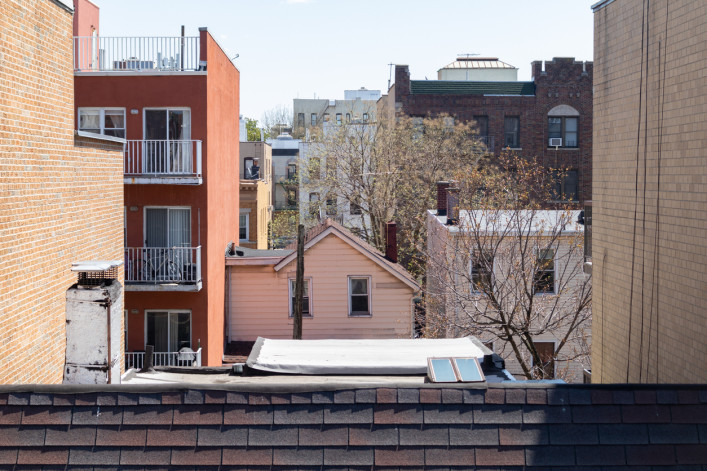Closing costs: How much you'll pay and how to avoid spending too much

You may spend tens of thousands of dollars on closing costs in NYC. For sellers, these costs can take a big chunk out of the proceeds. For buyers, they can affect budget, possibly even causing you to buy one home over another.
iStock
One surprising aspect of buying or selling your home is the amount you’ll spend on closing costs—sometimes tens of thousands of dollars. For sellers, these costs can take a big chunk of the proceeds. For buyers, they can affect budget, possibly even causing you to buy one home over another. So what do you need to know about closing costs? Read on to find out:
What are closing costs?
The most expensive items are the broker’s commission, taxes, mortgage expenses, attorney’s fees and building fees. Some costs—such as move-in and move-out fees—are the same across the board, while others hinge on the sale price or what kind of apartment you’re contending with (condos, for example, have higher costs for buyers), and whether or not you’re getting a mortgage.
How much should you budget?
Buyers
- Set aside 2 to 3 percent of the purchase price (3 to 4 percent if the apartment is over $1 million).
- Closing costs will be higher if you’re buying a condo since you’ll have to cover title insurance, which is determined by state. There are also a number of administrative charges, which usually run $3,000 to $4,000. (Co-ops don’t require title insurance since there’s no transfer of title for real property).
- If you need a mortgage to buy that condo, you’ll pay another $2,000 to $3,000 for bank fees, including the bank’s attorney’s fees, and an appraisal. There’s also a mortgage tax of 1.925 percent for loans over $500,000 or 1.8 percent for loans under $500,000.
- Attorney’s fees can range from $2,000 to $5,000—more if the deal is more complex than just buying a single apartment.
Sellers
- Expect to pay more than buyers since you have to cover the brokers’ commission, which is usually 6 percent (split between the listing and buyer’s brokers).
- There’s also a transfer tax of 1.825 percent if the sale price is over $500,000 or 1.4 percent for deals under $500,000.
- Attorney’s fees range between $2,000 to $2,500 depending on the complexity of the transaction.
- Some co-ops also have flip taxes of around 2 percent, and sellers are almost always responsible for this cost.
With seller transaction costs so high, you may be understandably reluctant to put your place on the market without a clear understanding of the price it will command. The pre-marketing platform at New York City brokerage Triplemint provides a no-risk way to quietly test your asking price and marketing strategy among actual buyers shopping for an apartment like yours. There's no charge to participate and no obligation to sell or enter a traditional listing agreement if you haven't found a buyer by the end of the pre-marketing period. To learn more, click here. >>
Unexpected expenses
- Sponsor’s closing costs: Buyers of new construction are often surprised to learn that they’re responsible for the developer’s closing costs, including transfer taxes and attorneys’ fees, as well as their unit’s share of the super’s apartment, if applicable.
- Mansion tax: This tax of almost 2 percent applies to any purchase over $1 million—even if you’re buying an apartment the size of a postage stamp.
- Building fees: Most condos and co-ops have move-in and move-out fees, which can range from a few hundred to a couple of thousand dollars, as well as board application fees of between $500 and $700.
How can you save some money?
- Arrange the deal to your advantage: If your purchase is close to the $1 million mark (but not over it), you might be able to structure the deal to avoid paying the mansion tax. For example, you could work out a deal with the seller to rent the apartment for a few months, and thereby keep the purchase itself under $1 million.
- Buy almost new: Instead of buying new construction, where you’ll be on the hook for the developer’s closing costs, try buying the first resale in a near-new construction.
- Save on the broker’s fee: Aside from negotiating the fee down—or forgoing a broker altogether and selling the home yourself—there are also services that will try and save you from paying the full 6 percent. RealDirect, for example, has marketing plans that fall somewhere between “for sale by owner” and brokered transactions for a 1 or 2 percent commission (plus the buyer’s broker’s commission).
Where should you always pay full price?
Never try to cut corners when it comes to your lawyer. You want an attorney who’s knowledgeable about NYC apartment sales and is always responsive—even if they cost $1,000 more.
For more, read “Closing costs 101: A guide for NYC buyers and sellers.”
Related:
5 surprising snafus that can crater your closing
Selling your NYC apartment: A timeline from conception to closing






















